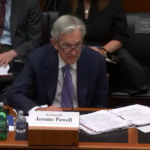Congresswoman Maxine Waters (D-CA), Congressman Sean Casten (D-IL), and Senator Sheldon Whitehouse (D-RI) have called on the National Association of Insurance Commissioners (NAIC) to expedite the integration of climate-related financial risks into the U.S. insurance industry’s regulatory framework. In a letter addressed to NAIC President Andrew M. Mais, the lawmakers emphasized the urgency of implementing critical recommendations made last year by the Treasury Department’s Federal Insurance Office (FIO).
The letter comes as millions of homeowners across the United States face an escalating insurance crisis driven by the increasing effects of climate change. The lawmakers expressed concern that this crisis is not only limiting the availability and affordability of insurance but also exacerbating broader economic challenges, including inflationary pressures and the worsening affordable housing crisis.
“Last June, in response to Executive Order 14030, the Treasury Department’s Federal Insurance Office released a report identifying climate-related gaps in state supervision and regulation of insurers,” the lawmakers wrote. “The FIO made 20 recommendations on how state regulators and the National Association of Insurance Commissioners can fill these gaps. Given NAIC’s role as an organization governed by insurance commissioners and one that develops model legislation, regulations, and best practices for states to consider adopting, we write to inquire about the status of the NAIC’s adoption of the 18 relevant recommendations made by the FIO around integrating climate-related financial risks into U.S. insurance supervision and regulation.”
The lawmakers highlighted findings from the Financial Stability Oversight Council’s (FSOC) 2023 annual report, which warned that the increasing frequency and severity of extreme weather events could jeopardize the solvency of insurers, affecting the cost and availability of coverage for homeowners and businesses. Such disruptions, they noted, could have significant ripple effects on mortgage markets, housing prices, and the broader economy.
The letter urged the NAIC to provide a detailed update by August 26, 2024, on its progress in implementing the FIO’s recommendations and any additional steps being taken to enhance insurance supervision and regulation in response to climate-related financial risks.
This correspondence is part of a broader effort by Democrats on the House Financial Services Committee to address the growing insurance crisis. Earlier this year, the Committee passed the “Wildfire Insurance Coverage Act,” a bill introduced by Ranking Member Waters. The legislation mandates a study by the Government Accountability Office to assess the rising threat of wildfires to communities and the insurance market’s response to this growing danger.
As climate change continues to drive more frequent and severe natural disasters, lawmakers are increasingly focused on ensuring that the insurance industry is adequately prepared to manage the associated financial risks. The response from the NAIC and state regulators will be closely watched as the nation grapples with the intersection of climate change, economic stability, and affordable housing.









